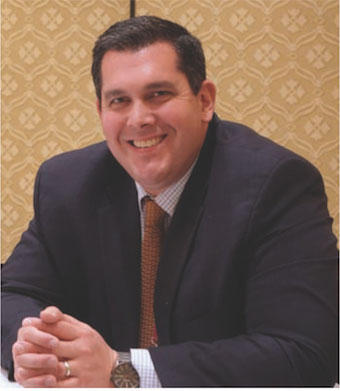
- Sequoyah Simermeyer’s four-year tenure as chairman of the National Indian Gaming Commission (NIGC) was perhaps the most unique of any to hold the position thus far, given that it included both the dismal lows wrought by the Covid-19 pandemic and the record-setting resurgence that followed shortly after. Simermeyer championed several NIGC initiatives over those four eventful years, including the advancement of self-regulation, cybersecurity, fiscal reporting and more. He spoke with TGG Editor Jess Marquez at the ICE London tradeshow in February in what were some of the final days of his term.
TGG: Now that the calendar has changed over to 2024, what is the commission most focused on for the rest of the year? What’s your main focus?
Simermeyer: I think a lot of it is going to be implementation of initiatives that we have been focusing on throughout recent years, but definitely helping to be a partner in the way the regulatory community thinks about technology, but also the threats that exist involving cybersecurity, and continue to try to help to promote good practices in that area.
You spoke in London on a panel regarding U.S. and European regulations. One concept that is very unique to tribal gaming is the concept of self-regulation. Could you expand on what that means from the commission’s perspective, especially at this point?
For us, self-regulation represents an authority within the Indian Gaming Regulatory Act (IGRA) that allows for tribes to petition the commission for a certificate of self-regulation. That certificate reduces some of the oversight role that the NIGC has in that tribe’s operations—things like site visits, demands for information without a subpoena—and it also provides some cost savings to the tribe… At the time of (IGRA’s) debate and passage, there was concern from tribal leaders about the role that other regulatory bodies, like the newly created NIGC at that time, would play when tribes had their own jurisdiction, authority and ability to regulate. And so this is one of the provisions that was in there, in part for that reason.
This is a time of huge growth for the tribal sector, and as a regulatory authority, what would you say is important for operators to keep in mind during this time?
With any kind of change within the industry, there’s always an opportunity for tribal legislators and lawmakers at the local level to assess what their policy objectives are through their regulatory body. So if there are changes, new offerings within the IGRA framework, there’s an opportunity to assess your ordinance, an opportunity to establish goals you have with your licensing process that would help to meet your bigger mission within IGRA.
As you reflect on your tenure, what are some things that stick out in your mind from the journey? What are some things that you’ll look back on fondly from your time at the NIGC?
From early on in the tenure, I’ve gained a strong appreciation for tribal government leadership, our own leaders and subject matter experts at the NIGC for their ability to be creative and resilient in navigating solutions from the pandemic, and then also to keep moving and advancing new areas and to leverage what we learned in that area.
I think the pandemic has been a significant moment for all of the industry, but in the regulatory community, it gave us at the NIGC an opportunity to change how we effectively engage with and collaborate with tribes on solving problems… It’s also given us an opportunity to develop more resources in particular for the pandemic, but as other priority areas have come up, like cybersecurity or active shooters and critical event response, it’s given us an opportunity to establish more guidance that can promote best practices in those areas.
To finish things off, this is obviously the last ICE in London, so I’m curious, what has been your favorite part about visiting London and what’s one thing you’ll miss before things move to Barcelona?
What’s been exciting about the opportunities we’ve had to be here in London is that it’s an extremely international city. And the level of activity and collaboration around it is really energizing. So I’ve very much enjoyed the time that I’ve been here for ICE. And it is absolutely an important part of understanding trends in the industry, so that’s always invigorating and exciting to see.






